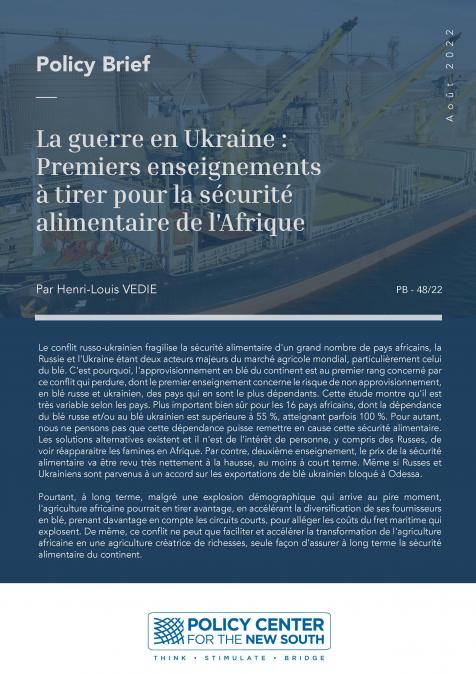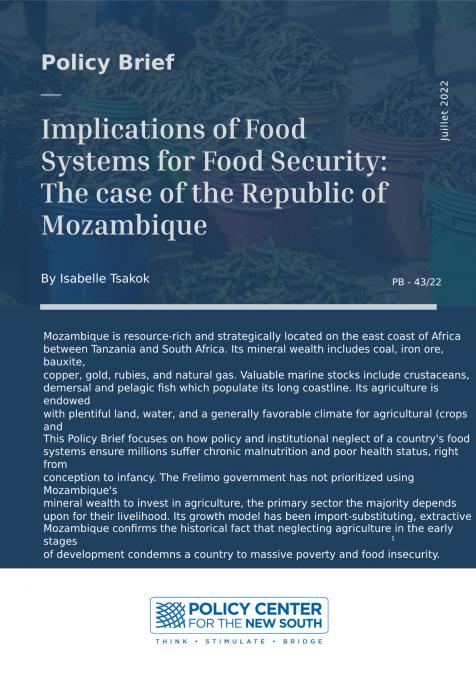Publications /
Policy Brief
Le conflit russo-ukrainien fragilise la sécurité alimentaire d'un grand nombre de pays africains, la Russie et l'Ukraine étant deux acteurs majeurs du marché agricole mondial, particulièrement celui du blé. C'est pourquoi, l'approvisionnement en blé du continent est au premier rang concerné par ce conflit qui perdure, dont le premier enseignement concerne le risque de non approvisionnement, en blé russe et ukrainien, des pays qui en sont le plus dépendants. Cette étude montre qu'il est très variable selon les pays. Plus important bien sûr pour les 16 pays africains, dont la dépendance du blé russe et/ou au blé ukrainien est supérieure à 55 %, atteignant parfois 100 %. Pour autant, nous ne pensons pas que cette dépendance puisse remettre en cause cette sécurité alimentaire. Les solutions alternatives existent et il n'est de l'intérêt de personne, y compris des Russes, de voir réapparaitre les famines en Afrique. Par contre, deuxième enseignement, le prix de la sécurité alimentaire va être revu très nettement à la hausse, au moins à court terme. Même si Russes et Ukrainiens sont parvenus à un accord sur les exportations de blé ukrainien bloqué à Odessa.
Pourtant, à long terme, malgré une explosion démographique qui arrive au pire moment, l'agriculture africaine pourrait en tirer avantage, en accélérant la diversification de ses fournisseurs en blé, prenant davantage en compte les circuits courts, pour alléger les coûts du fret maritime qui explosent. De même, ce conflit ne peut que faciliter et accélérer la transformation de l'agriculture africaine en une agriculture créatrice de richesses, seule façon d'assurer à long terme la sécurité alimentaire du continent.










